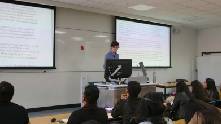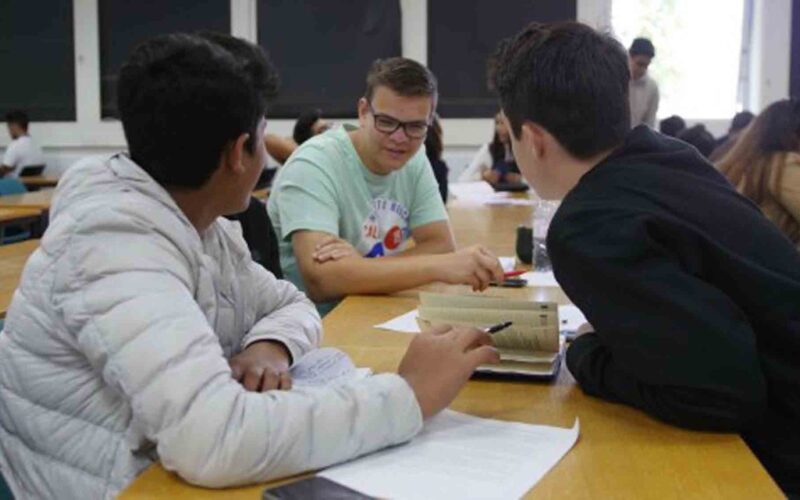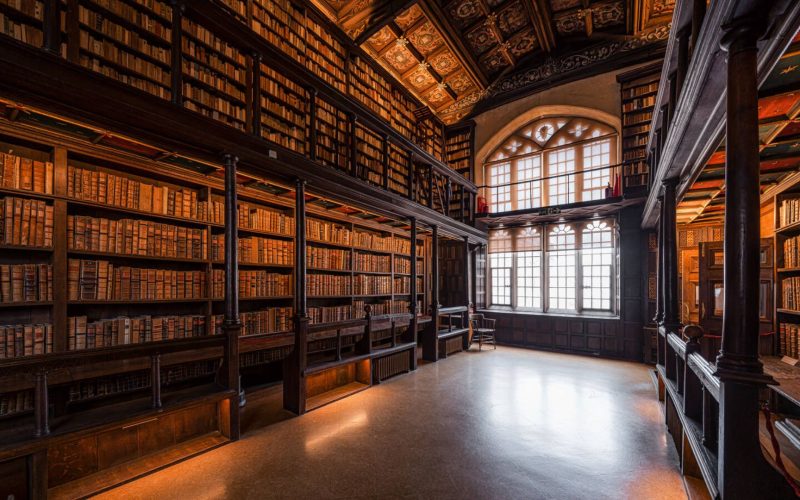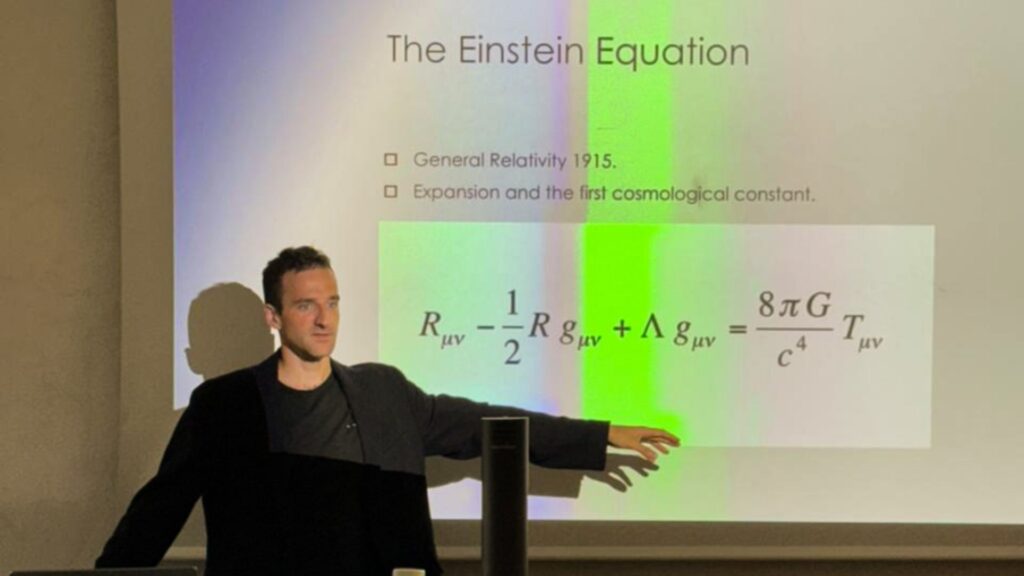The Oxford London Program’s first week has been nothing short of enlightening, particularly with the captivating lecture on dark energy and dark matter led by Carlo Palazzi. As students settled into their new environment, this lecture stood out as a profound exploration into some of the universe’s most enigmatic phenomena.
Setting the Stage: A Historical Context
Carlo Palazzi, a researcher in renewable energy systems and a DPhil candidate at the University of Oxford, began the session by providing a historical overview of cosmology. He took students back to the early days of astronomical observations, explaining how our understanding of the universe has evolved over centuries. This historical context was crucial in setting the stage for the discussion on dark energy and dark matter, highlighting the pivotal discoveries and theoretical advancements that have shaped our current knowledge.
Unveiling Dark Matter
One of the key topics Carlo delved into was dark matter, a mysterious and invisible substance that makes up about 27% of the universe. He explained how dark matter was first proposed by Fritz Zwicky in the 1930s, based on observations of galaxy clusters that showed more gravitational pull than could be accounted for by visible matter alone. Carlo elucidated the various methods scientists use to infer the presence of dark matter, such as gravitational lensing and the rotation curves of galaxies.
The students were particularly intrigued by the indirect methods of detecting dark matter, given that it neither emits nor absorbs light. Carlo’s explanation of experiments like PandaX and HyperKamiokande, in which he has contributed analysis, offered a glimpse into the cutting-edge research aimed at uncovering the true nature of dark matter. These experiments, located deep underground, seek to detect the rare interactions between dark matter particles and ordinary matter, a testament to the meticulous and groundbreaking efforts in this field.
The Enigma of Dark Energy
Transitioning to dark energy, Carlo discussed this equally perplexing component of the cosmos, which is believed to drive the accelerated expansion of the universe. Comprising approximately 68% of the universe, dark energy remains one of the most significant mysteries in cosmology. Carlo explained the observational evidence for dark energy, including the redshift of distant supernovae and the cosmic microwave background radiation, which suggest that the universe’s expansion is speeding up rather than slowing down.
He also covered the theoretical models that attempt to explain dark energy, such as the cosmological constant proposed by Einstein and more recent theories involving dynamic fields. Carlo emphasized the importance of ongoing observations and experiments, including those conducted by space telescopes like the Hubble and future missions like the James Webb Space Telescope, which aim to provide deeper insights into dark energy’s properties.
Engaging with the Unknown
The lecture was not just a dissemination of facts but an invitation for students to engage with the unknown. Carlo encouraged students to question and discuss the concepts presented, fostering an interactive learning environment. This approach not only enhanced their understanding but also ignited a sense of curiosity and wonder about the universe.
Reflecting on the Experience
For many students, this lecture was a highlight of their first week in the Oxford London Program. It offered a fascinating glimpse into the forefront of astrophysical research and underscored the importance of continued inquiry and exploration. Carlo’s passion for the subject was palpable, and his ability to break down complex ideas into comprehensible segments made the session accessible and engaging for all attendees.
The lecture on dark energy and dark matter was a profound start to the students’ academic journey in the Oxford London Program. It exemplified the program’s commitment to providing a rigorous and inspiring educational experience. As students continue their exploration of these cosmic mysteries, they carry with them a deeper appreciation for the complexities of the universe and the relentless pursuit of knowledge that drives scientific discovery.











